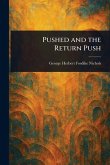"The Victims' Return" offers a poignant look at the social and psychological aftermath of World War I in France. Written shortly after the armistice, Noëlle Roger and Eugène Pittard explore the challenges faced by returning soldiers and the broader impact of the war on French society. This insightful work examines the difficulties of reintegration, the psychological scars of combat, and the evolving social landscape in a nation grappling with immense loss and change. Through careful observation and analysis, the authors shed light on the experiences of war veterans and the support systems-or lack thereof-available to them. "The Victims' Return" serves as a valuable historical document, capturing a critical period of transition and offering a deeper understanding of the human cost of war. This book remains relevant for anyone interested in the social and emotional consequences of large-scale conflict and the enduring challenges faced by those who return from battle. This work has been selected by scholars as being culturally important, and is part of the knowledge base of civilization as we know it. This work was reproduced from the original artifact, and remains as true to the original work as possible. Therefore, you will see the original copyright references, library stamps (as most of these works have been housed in our most important libraries around the world), and other notations in the work. This work is in the public domain in the United States of America, and possibly other nations. Within the United States, you may freely copy and distribute this work, as no entity (individual or corporate) has a copyright on the body of the work. As a reproduction of a historical artifact, this work may contain missing or blurred pages, poor pictures, errant marks, etc. Scholars believe, and we concur, that this work is important enough to be preserved, reproduced, and made generally available to the public. We appreciate your support of the preservation process, and thank you for being an important part of keeping this knowledge alive and relevant.
Bitte wählen Sie Ihr Anliegen aus.
Rechnungen
Retourenschein anfordern
Bestellstatus
Storno








